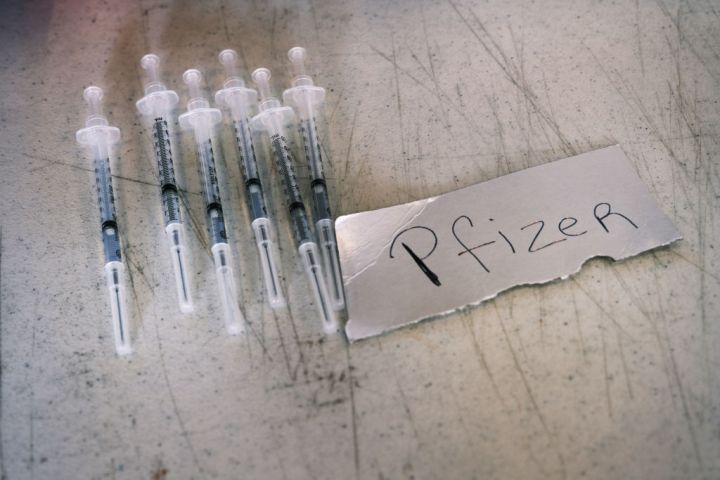
Booster COVID vaccinations could reap billions for pharmaceutical companies
Booster COVID vaccinations could reap billions for pharmaceutical companies

The World Health Organization is asking wealthier nations to hold off on giving COVID booster shots to people who are already vaccinated until at least the end of September. That’s in order to ensure there’s enough vaccine to meet the WHO’s goal of vaccinating 10% of the world’s population. It comes during increased demand for booster shots, though need is unclear.
“We have distributed [vaccines] in such a way that they’re really concentrated in some areas so that there’s actually a surplus. And then, for much of the world, there is nothing,” said Andrea Taylor, assistant director of the Duke Global Health Innovation Center.
The WHO estimates that more than 80% of vaccine doses distributed so far have gone to high- and upper-middle income countries.
Scientists also point out that the more widespread the virus is globally, the more likely it is to mutate, which could result in more variants making their way back to the U.S.
“We are absolutely at a point where global vaccine equity is the most absolutely most important thing we can do to prevent the reemergence and continual emergence of variants,” said Monica Gandhi, an infectious disease doctor and professor of medicine at University of California-San Francisco.
The federal government says people who are fully vaccinated don’t need additional doses right now. Still, the pharmaceutical companies are researching whether boosters are necessary.
“The companies are leading the narrative that we need boosters annually, that we have no tolerance for any COVID infection, and we want to make sure we protect against any kind of future variants,” said Geoff Meacham, a senior biotech and pharmaceutical analyst at Bank of America.
Moderna has said it’s hoping to produce a booster that could vaccinate against both COVID-19 and the flu.
But the two viruses don’t mutate in the same way.
“The coronavirus itself isn’t really set up like the flu,” Meacham said. “You do get variants, but they’re not nearly as frequent. It’s not a seasonal thing.”
Moderna and Pfizer stand to bring in billions of dollars annually if regular boosters are needed.
Meanwhile, the fear that the initial vaccines won’t be enough is real. Mark Dinan, 47, is a recruiter in Silicon Valley. He got the Johnson & Johnson vaccine in April. Then, when the delta variant came along, he started getting nervous, for both himself, and the business he runs.
“For me to get seriously ill from COVID, it would wipe me out, and I’m going to do everything I can to make sure that that doesn’t happen,” Dinan said.
So, in late July, Dinan went to his local CVS pharmacy and got a dose of the Pfizer vaccine, too.
This isn’t technically allowed. Dinan gave his work email and phone number to the pharmacy. He’d provided personal information the first time around.
“I called up at 10 a.m. and I had my shot by noon,” said Dinan. “It’s an incredible luxury in the United States that we have this access to vaccines.”
Johnson & Johnson and the CDC say there’s no need for an extra dose. But Dinan points out that a hospital in San Francisco has started offering supplemental doses of Pfizer and Moderna to people who received the Johnson & Johnson vaccine.
“I don’t want to be that guy that, the CDC guideline changes in October, and I’ve been sick with it for two months. And I’m saying, ‘Oh, now you told me,’” Dinan said.
There’s a lot happening in the world. Through it all, Marketplace is here for you.
You rely on Marketplace to break down the world’s events and tell you how it affects you in a fact-based, approachable way. We rely on your financial support to keep making that possible.
Your donation today powers the independent journalism that you rely on. For just $5/month, you can help sustain Marketplace so we can keep reporting on the things that matter to you.











